Not many people know about African American Day, also called African American Emancipation Day, created by the Colored Auxiliary Society in the 1800s in order to celebrate the anniversary of their emancipation. Several influential African American men, from politicians and writers, many of who were formerly enslaved, prepared to speak and celebrate African American Emancipation Day on January 1st, 1886.
This is a major part of Black History because it is completely absent from the United States educational system, therefore, many people, both young and old, don’t know that it existed and was widely celebrated. Such names as Frederick Douglass (abolitionist, US Minister Resident to Haiti), J. M. Langston (elected congressman 1890-1891), Reverend H. M. Turner (congressman 1868-1869, T.T. Fortune (NY Globe Editor) and many more showed up as orators for the celebrated event, which was one of the first documented Black American holiday celebrations, Juneteenth having been founded in 1866, some decades prior.
The difference between these two Black American holidays is that Juneteenth commemorates the last of the enslaved being freed, while African American Day refers to the official day of freedom for all enslaved. The news of freedom took a long time to travel to all parts of the United States, and even then, several slavers were hiding the enslaved, not wanting to them to know they were free.
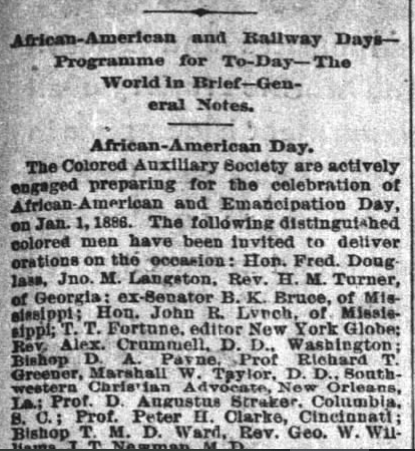
Source: The Times-Picayune, New Orleans, Louisiana, Sun, November 29, 1885
African American Emancipation Day had been celebrated each year as African Americans would continue solidifying their ethnicity and culture in the United States through these celebrations of their freedom and achievements.
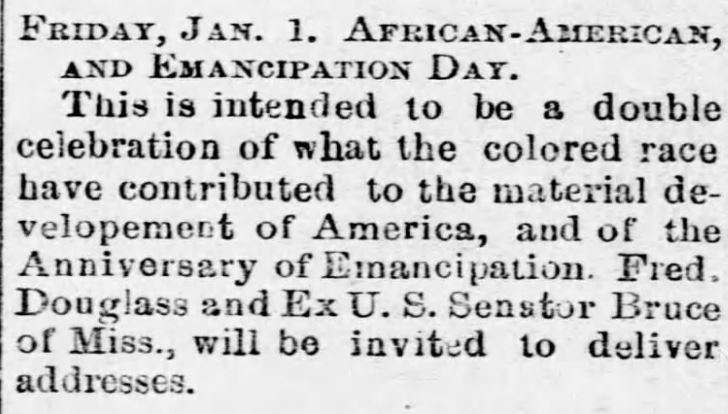
Source: Florence Tribune, Florence Kansas Saturday, October 24, 1885
African American Emancipation Day was known and celebrated by Black Americans throughout the nation because Black America has always been tightly knit, with the ability to communicate and come together effectively in the thousands, proven through their resilience in the Underground Railroad.
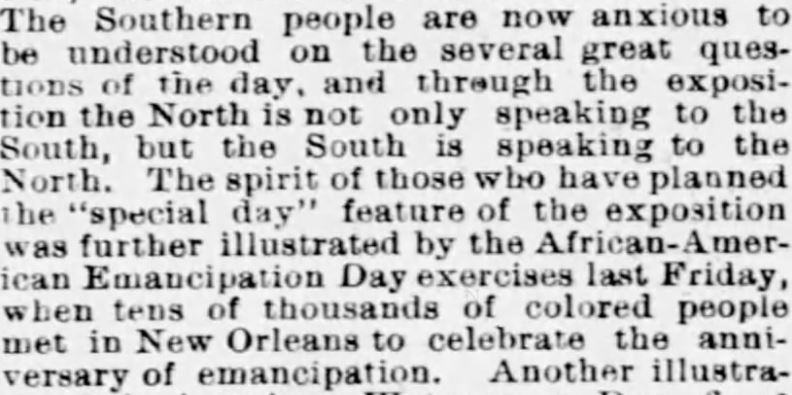
Pic Source: Boston Evening Transcript, Boston, Massachusetts, Wednesday, January 6, 1886
Not much is documented on the full event, but based on the documented articles, it was a “special day” and thousands of African Americans gathered to celebrate, therefore, one can infer that it was festive. Commemorating the day of their emancipation from slavery was very special, and unfortunately, over the centuries, this history has been set aside, although it should have never been. January 1st is African American Day after a long battle won, celebrated just like Juneteenth in June, because these days mark important days in African American history.
This article was researched and written by multi-genre author and co-fonder of Akrirm Press Publishing Mirika Mayo Cornelius.

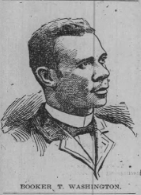

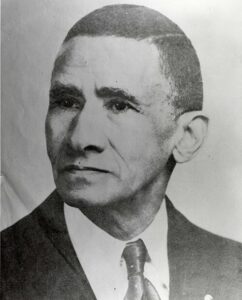

More Related Stories
Booker T. Washington & His Foundational Role in the Reclaiming & Redefining of the Term BLACK as a Positive
More Black American Midwives Are Needed Across the USA After Systemic Attacks Reduced Their Numbers in the 1900s
Isaac Scott Hathaway – Founder of Isaac Hathaway Art Company & Designer of First African American Coin